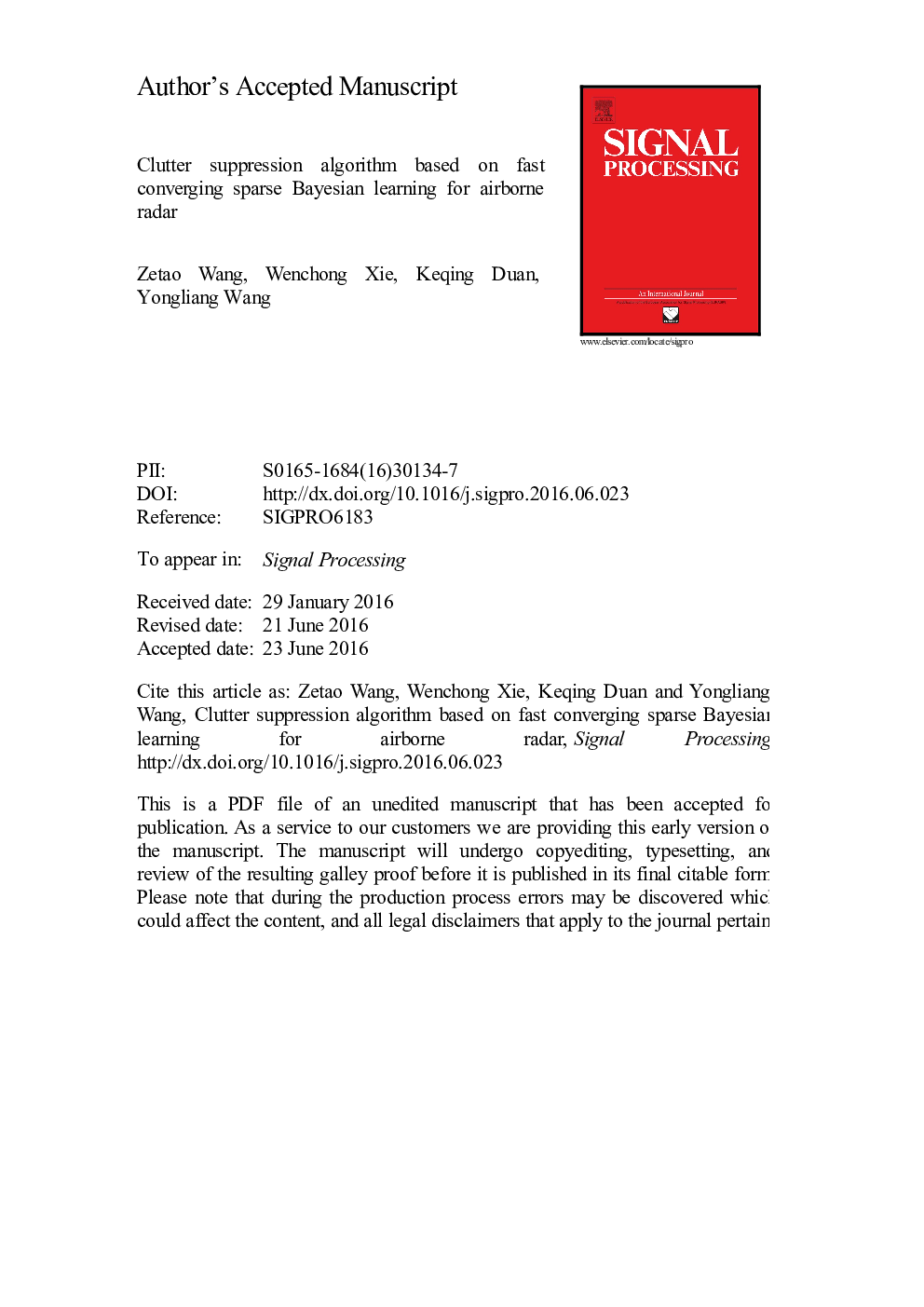| Article ID | Journal | Published Year | Pages | File Type |
|---|---|---|---|---|
| 6958136 | Signal Processing | 2017 | 29 Pages |
Abstract
Adapting the space-time adaptive processing (STAP) filter with finite number of secondary data is of particular interest for airborne phased-array radar clutter suppression. Sparse representation (SR) technique has been introduced into the STAP framework for the benefit of drastically reduced training requirement. However, most SR algorithms need the fine tuning of one or more user parameters, which affect the final results significantly. Sparse Bayesian learning (SBL) and multiple sparse Bayesian learning (M-SBL) are robust and user parameter free approaches, but they converge quite slowly. To remedy this limitation, a fast converging SBL (FCSBL) approach is proposed based on Bayesian inference along with a simple approximation term, then, it is extended to the multiple measurement vector case, and the resulting approach is termed as M-FCSBL. To improve the performance of STAP in finite secondary data situation, the M-FCSBL is utilized to estimate the clutter plus noise covariance matrix (CCM) from a limited number of secondary data, and then the resulting CCM is adopted to devise the STAP filter and suppress the clutter. Numerical experiments with both simulated and Mountain-Top data are carried out. It is shown that the proposed algorithm has superior clutter suppression performance in finite secondary data situation.
Related Topics
Physical Sciences and Engineering
Computer Science
Signal Processing
Authors
Zetao Wang, Wenchong Xie, Keqing Duan, Yongliang Wang,
